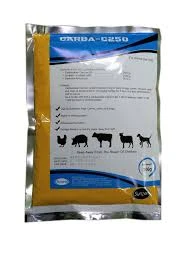- Afrikaans
- Albanian
- Amharic
- Arabic
- Armenian
- Azerbaijani
- Basque
- Belarusian
- Bengali
- Bosnian
- Bulgarian
- Catalan
- Cebuano
- Corsican
- Croatian
- Czech
- Danish
- Dutch
- English
- Esperanto
- Estonian
- Finnish
- French
- Frisian
- Galician
- Georgian
- German
- Greek
- Gujarati
- Haitian Creole
- hausa
- hawaiian
- Hebrew
- Hindi
- Miao
- Hungarian
- Icelandic
- igbo
- Indonesian
- irish
- Italian
- Japanese
- Javanese
- Kannada
- kazakh
- Khmer
- Rwandese
- Korean
- Kurdish
- Kyrgyz
- Lao
- Latin
- Latvian
- Lithuanian
- Luxembourgish
- Macedonian
- Malgashi
- Malay
- Malayalam
- Maltese
- Maori
- Marathi
- Mongolian
- Myanmar
- Nepali
- Norwegian
- Norwegian
- Occitan
- Pashto
- Persian
- Polish
- Portuguese
- Punjabi
- Romanian
- Russian
- Samoan
- Scottish Gaelic
- Serbian
- Sesotho
- Shona
- Sindhi
- Sinhala
- Slovak
- Slovenian
- Somali
- Spanish
- Sundanese
- Swahili
- Swedish
- Tagalog
- Tajik
- Tamil
- Tatar
- Telugu
- Thai
- Turkish
- Turkmen
- Ukrainian
- Urdu
- Uighur
- Uzbek
- Vietnamese
- Welsh
- Bantu
- Yiddish
- Yoruba
- Zulu
Ноя . 28, 2024 08:02 Back to list
Antibacterial Powder for Veterinary Use to Support Animal Health and Recovery
The Role of Antibacterial Powders in Veterinary Medicine
In the world of veterinary medicine, the health and well-being of animals are of utmost importance. Among the various tools and treatments available to veterinarians, antibacterial powders have gained significant attention. These powders are specially formulated substances that are used to prevent and treat infections in animals, contributing to faster recovery and better overall health.
Antibacterial powders are primarily composed of antimicrobial agents that are effective against a broad spectrum of bacteria. They are often employed in veterinary practice for treating wounds, skin infections, and surgical sites. The primary advantage of using antibacterial powders lies in their ability to provide targeted treatment, thereby minimizing the risk of antibiotic resistance that is often associated with systemic antibiotic therapies.
The Role of Antibacterial Powders in Veterinary Medicine
Moreover, antibacterial powders are also beneficial in managing dermatological conditions. Conditions such as dermatitis, pyoderma, and other skin infections can cause discomfort and lead to more severe health issues if left untreated. Antibacterial powders can be applied directly to affected areas, effectively combating harmful bacteria while providing soothing relief to the skin. This localized treatment reduces the need for systemic antibiotics, which can have side effects and contribute to a host of other health issues.
veterinary antibacterial powder

In addition to being effective, the safety profile of antibacterial powders makes them a reliable choice in veterinary care. They typically contain natural or low-toxicity ingredients that pose minimal risk to the animal. Veterinarians can confidently use these products knowing they are less likely to provoke adverse reactions, making them suitable even for sensitive animals.
Furthermore, antibacterial powders are also advantageous in post-operative care. After surgeries, animals are at risk of developing infections at incision sites. Applying an antibacterial powder can significantly reduce this risk while promoting healing. This preventive measure eases the recovery process and provides peace of mind to pet owners, who are often concerned about their beloved animals during the healing phase.
It's worth noting that while antibacterial powders are beneficial, they should not be used indiscriminately. Veterinarians must assess each situation thoroughly to ensure the appropriate treatment route is chosen. Companion animals, livestock, and exotic species may present different challenges and require tailored approaches to treatment. The expertise of a veterinarian is crucial in determining the best use of antibacterial powders in the context of each animal's unique health status.
In conclusion, antibacterial powders play a vital role in veterinary medicine by providing effective and safe methods for managing infections in animals. Whether for treating wounds, addressing skin conditions, or aiding in post-surgical recovery, these powders offer numerous advantages over traditional treatments. Their targeted application and minimal side effects make them an essential tool for veterinarians dedicated to ensuring the health and well-being of their animal patients. As veterinary medicine continues to evolve, the use of antibacterial powders is likely to remain a fundamental component in promoting animal health.
-
Guide to Oxytetracycline Injection
NewsMar.27,2025
-
Guide to Colistin Sulphate
NewsMar.27,2025
-
Gentamicin Sulfate: Uses, Price, And Key Information
NewsMar.27,2025
-
Enrofloxacin Injection: Uses, Price, And Supplier Information
NewsMar.27,2025
-
Dexamethasone Sodium Phosphate Injection: Uses, Price, And Key Information
NewsMar.27,2025
-
Albendazole Tablet: Uses, Dosage, Cost, And Key Information
NewsMar.27,2025













